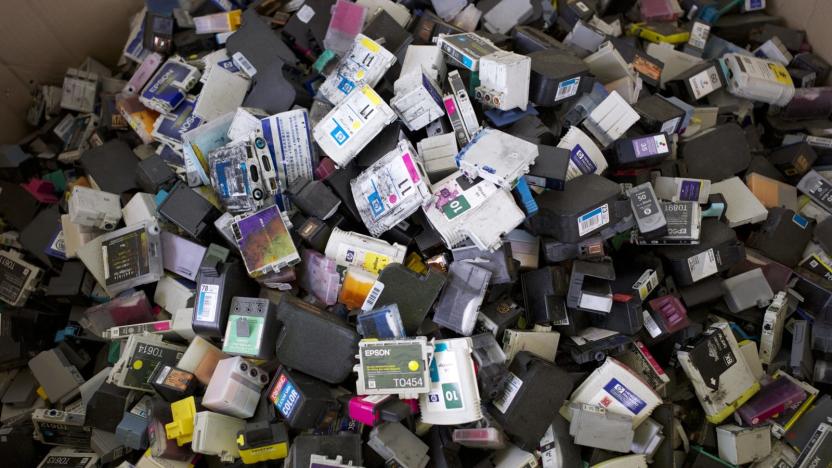SupremeCourtRuling
Latest

Supreme Court decision lifts ownership rights over patent law
In a win for anyone who has ever been frustrated by overpriced ink, the Supreme Court ruled today (PDF) that printer maker Lexmark can't sue companies that refill old cartridges and sell them at a discount. More specifically, the court ruled that Lexmark gave away its patent rights to the cartridges (and their single-use microchips) as soon as it started selling them. While the case may seem narrowly focused, digital rights groups are hailing it as a win for consumers in general and a decision that could affect everyone's right to repair their own devices.

Supreme Court rules that naturally occurring DNA cannot be patented
In a plot twist straight out of Orphan Black, the Supreme Court has ruled that naturally occurring DNA cannot be patented, but synthetic biological material is fair game. The case involved Myriad Genetics, a company specializing in molecular testing, after it tried to patent two genes -- BRCA1 and BRCA2 -- that are often linked to breast and ovarian cancer. The Association for Molecular Pathology filed the suit, arguing that the patent would place undue restrictions on research since only Myriad would be allowed to tinker with those genes. The ruling established that isolating naturally occurring genetic material -- as Myriad did -- wasn't enough to justify legal ownership, but so-called complementary DNA (meaning it's man-made) would be eligible for patenting. Myriad had no comment at the time of this writing, but Sandra Park, an attorney with the ACLU Women's Rights Project said, "Myriad did not invent the BRCA genes and should not control them. Because of this ruling, patients will have greater access to genetic testing and scientists can engage in research on these genes without fear of being sued."

Judges fighting litigation with Supreme Court's "obvious" patent ruling
You might recall that the Supreme Court recently handed down a decision which loosened the definition of "obvious" as applied to patent interpretation, saying that if a person of ordinary skill could "fit the teaching of multiple patents together like pieces of a puzzle," the patent is obvious and unenforceable. That decision, which has been called the most important patent ruling in decades, is starting to affect several longstanding patent disputes, most notably a case brought against Real Networks in 2003 by a company called Friskit. In the first instance of a judge applying the new rule, Friskit's patents have been deemed unenforceable as obvious, a change from an earlier ruling allowing the case to go forward. Friskit is of course considering an appeal, but we wouldn't be surprised to see a lot more of these suits decided early on the basis of obviousness.[Via TechDirt]
